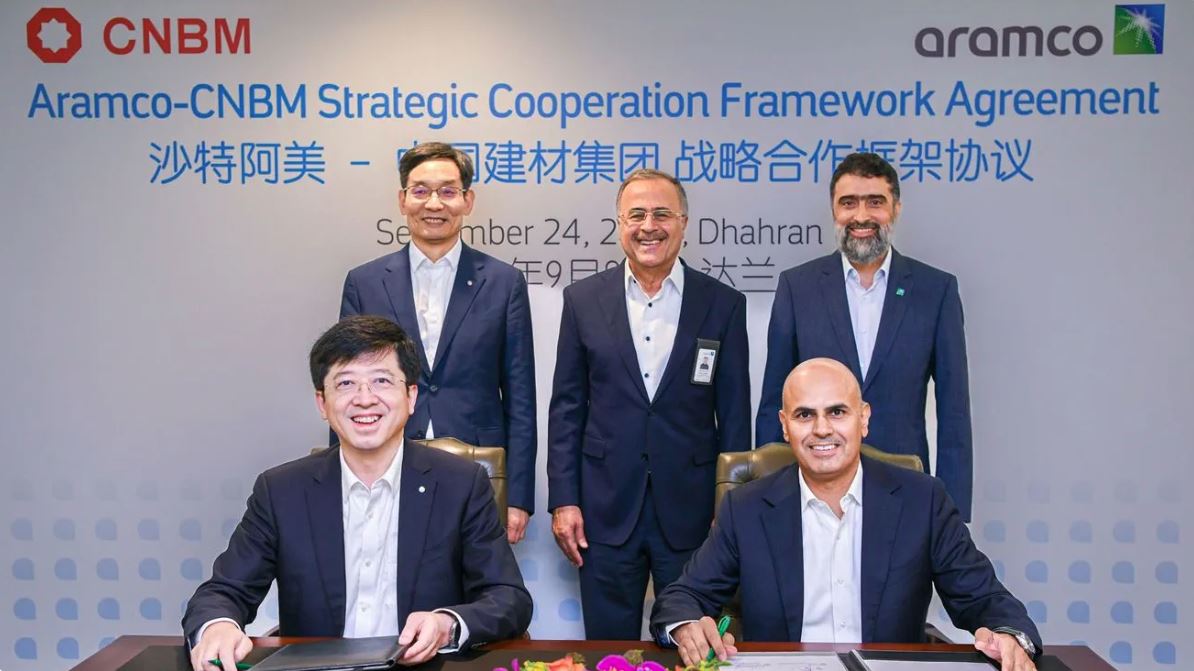
The meeting between Aramco and CNBM underlines Saudi Arabia’s commitment to furthering its industrial infrastructure, with both companies considering joint ventures that would establish state-of-the-art manufacturing plants across the country. The focus of the collaboration spans multiple sectors, including construction materials, advanced manufacturing, and energy technology, positioning Saudi Arabia as a major player in the global industrial landscape.
CNBM, one of the largest construction materials manufacturers globally, brings a wealth of experience in producing materials critical for the construction of large-scale industrial complexes. The company’s expertise in cement, glass, and other materials is expected to play a pivotal role in supporting Saudi Arabia’s massive infrastructural projects. These projects, part of Vision 2030, include the Neom mega-city and the Red Sea development, both of which require vast amounts of building materials and innovative construction technologies.
Aramco’s involvement is key to the energy side of the partnership. While traditionally focused on oil and gas, Aramco has been steadily expanding its investments into new sectors, including renewable energy, chemicals, and advanced manufacturing. The company’s ability to leverage its existing infrastructure and resources within Saudi Arabia provides an ideal foundation for large-scale industrial projects.
By combining Aramco’s financial strength and industrial expertise with CNBM’s knowledge of construction materials, the collaboration aims to enhance Saudi Arabia’s capacity to produce vital materials domestically, reducing its reliance on imports and fostering local job creation. The move is seen as a critical step in fulfilling the objectives of Vision 2030, which emphasizes self-sufficiency in industrial production and the creation of high-skilled jobs within the Kingdom.
Industrial manufacturing is seen as a key pillar of Saudi Arabia’s economic future. The government has been working actively to attract foreign investment into the sector, offering incentives and support to international companies willing to contribute to the country’s diversification efforts. The partnership with CNBM fits into this broader strategy, as it could facilitate technology transfer, increase local production capabilities, and drive innovation in the Saudi manufacturing space.
In addition to cement and building materials, CNBM’s potential collaboration with Aramco may extend into renewable energy components and advanced manufacturing technologies. The Kingdom has been increasingly vocal about its commitment to renewable energy, with ambitious targets to expand solar, wind, and hydrogen production. These new energy sectors will require sophisticated manufacturing facilities to produce the necessary components, such as photovoltaic panels, wind turbine parts, and hydrogen processing technologies.
Saudi Arabia’s strategic location, with its proximity to European, Asian, and African markets, further enhances its appeal as a global manufacturing hub. Establishing strong domestic production capabilities through partnerships like that of Aramco and CNBM not only supports the Kingdom’s internal development but also positions it as a key supplier to international markets. The development of industrial cities, such as the King Salman Energy Park (SPARK), provides an ecosystem where large-scale manufacturing operations can flourish, supported by world-class infrastructure and logistics.
The talks with CNBM also reflect a broader trend of Saudi Arabia looking eastward for economic partnerships, particularly with China. In recent years, the Kingdom has expanded its economic ties with China, especially in areas like infrastructure, technology, and energy. China, as one of the world’s largest consumers of energy and construction materials, sees great potential in collaborating with Saudi Arabia, particularly in areas that could benefit both countries’ strategic goals. For China, partnering with Aramco offers not only access to critical energy resources but also an opportunity to tap into the Kingdom’s growing industrial sector.
Saudi Arabia’s manufacturing sector has been growing, albeit gradually, but partnerships like this could help accelerate that growth. Aramco’s shift toward non-oil sectors is not just about economic diversification; it’s also a signal to the global market that the company is preparing for a future where energy demand and industrial production are more interconnected. With CNBM’s experience and capacity to meet the demands of large-scale projects, the partnership is poised to boost the Kingdom’s industrial development significantly.
Saudi Arabia is also keen to enhance its domestic workforce as part of this transformation. The collaboration with CNBM could lead to skills development initiatives, training programs, and knowledge transfer projects that benefit Saudi nationals. By fostering a highly skilled workforce, the Kingdom aims to reduce unemployment, particularly among young Saudis, and increase participation in sectors traditionally dominated by foreign labor.
Topics
Spotlight
